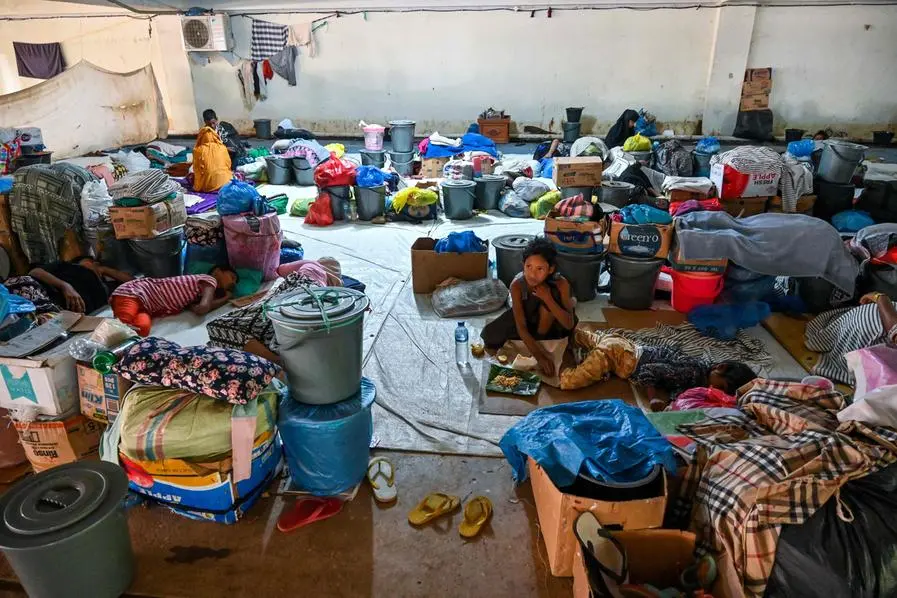PHOTO
A boat carrying Rohingya refugees and a fishing boat trying to help them capsized in waters off Indonesia's westernmost coast on Wednesday, with six people rescued and some carried away by strong currents, local fishermen said.
The mostly Muslim Rohingya are heavily persecuted in Myanmar, and thousands risk their lives each year on long and expensive sea journeys, often in flimsy boats, to try to reach Malaysia or Indonesia.
"We received a report from fishermen in West Aceh that a boat carrying Rohingya refugees capsized in the sea near Meulaboh. A fisherman saw the Rohingyas at 8:00 am (0100 GMT) with their boat sinking," Nanda Ferdiansyah from West Aceh traditional fishing community told AFP.
"As soon as the fisherman's boat approached them, they all got on the boat. As soon as they got onboard, the fisherman's boat also sank because of overcapacity."
The Rohingya boat had capsized about seven miles (11 kilometres) off Kuala Bubon beach in West Aceh, its fishing community's secretary general Pawang Amiruddin said in a statement.
"The report from local fishermen said a Rohingya boat capsized and they (the refugees) saved themselves by getting onto the hull of the overturned boat. Some other people were carried away by the strong currents," the statement said.
"So far six people have been rescued by the local fisherman, four women and two men."
It did not say if those carried away were feared to have died.
The United Nations refugee agency said it was "deeply concerned" about the reports of the incident, saying "tens of Rohingya refugees" were in desperate need of rescue but could not confirm exact numbers.
"We hope that search and rescue could be performed and the refugees can be brought to land as soon as possible. This is an emergency," UNHCR said in a statement.
Local police and the regional government did not respond to requests for comment.
The incident comes after months of Rohingya arrivals on Indonesian shores.
From mid-November to late January, 1,752 refugees -- mostly women and children -- landed in the Indonesian provinces of Aceh and North Sumatra, according to UNHCR.
The agency said it was the biggest influx into the Muslim-majority country since 2015.





















